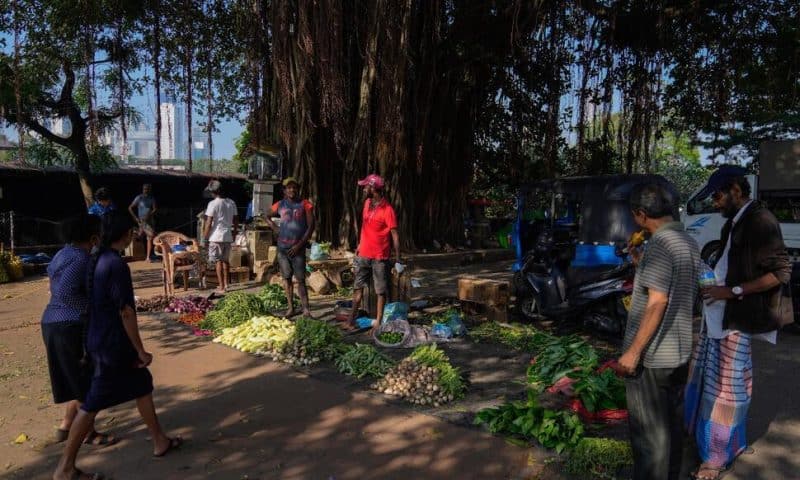The International Monetary Fund executive board has approved the release of the second tranche of a bailout package to help Sri Lanka recover from the worst economic crisis in its history
COLOMBO, Sri Lanka — The International Monetary Fund executive board approved the release of the second tranche of a $2.9 billion dollar bailout package to help Sri Lanka recover from the worst economic crisis in its history.
In a statement, the fund said the decision Tuesday to release $337 million came after Sri Lanka had made “commendable progress” toward debt sustainability, raising revenue, rebuilding its reserves, reducing inflation and safeguarding financial stability.
It said a strong commitment to improving governance and protecting the poor and vulnerable remains critical.
In September, the IMF delayed the release of the second tranche of the four-year package, saying Sri Lanka’s economy was recovering but the country needed to improve its tax administration, eliminate exemptions and crack down on tax evasion.
Sri Lanka plunged into its worst economic crisis last year, suffering severe shortages and drawing strident protests that led to the ouster of then-President Gotabaya Rajapaksa. It declared bankruptcy in April 2022 with more than $83 billion in debt — more than half of it to foreign creditors.
The approval follows Sri Lanka’s agreement with an Official Creditor Committee on debt restructuring, covering about $5.9 billion of outstanding public debt. Japan and India are members of the 17-strong creditor committee. Sri Lanka had previously reached a debt restructuring agreement with China’s EXIM Bank covering $ 4.2 billion in outstanding debt.
Sri Lanka is hoping to restructure $17 billion of its tens of billions of outstanding debt.
Over the past year, Sri Lanka’s severe shortages of essentials like food, fuel and medicine have largely abated, and authorities have restored power supplies.
But public dissatisfaction has grown over the government’s efforts to increase revenues by raising electricity bills and imposing heavy new income taxes on professionals and businesses.
This week the government increased the rate of the Valued Added Tax and extended it to cover many essential items such as cooking gas, fuel, medicines etc. under the tax.

